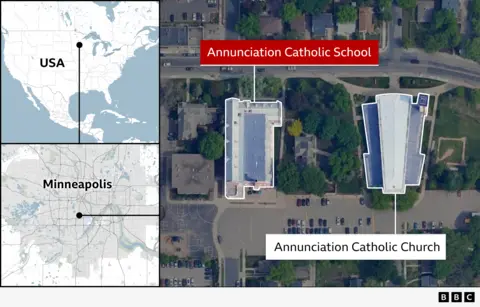The quiet picturesque Saturdays that many cherish for leisurely outings took a dark turn in Bondi Junction, as Elizabeth Young recounted the unbearable loss of her daughter Jade, murdered in a brutal stabbing at a shopping center. "Saturdays are a reminder of our shattered lives," Elizabeth remarked during a recent inquiry probing the killings. Her emotional testimony was echoed by other families who suffered the devastating loss of loved ones in the tragic events that unfolded on April 13, 2022.
The inquiry seeks to address how Joel Cauchi, a 40-year-old man from Queensland with a documented history of mental illness, gained access to the Bondi Junction shopping mall and committed a rampage that left six dead and inflicted injuries on ten others. Elizabeth noted that the failures of numerous systems contributed to her daughter's death and the loss of others, making it imperative to identify ways to prevent similar incidents in the future.
On that fateful afternoon, Cauchi entered the busy shopping center and, within minutes, wielded a large knife to claim his first victim, followed almost immediately by five others including Jade. Officers on the scene swiftly responded, shooting Cauchi just five minutes after he began his terrifying spree.
Witness accounts and police investigations revealed that Cauchi had a long-standing relationship with mental health services. Once a promising student, his mental state drastically deteriorated after being diagnosed with schizophrenia at 17 and gradually ceasing medication. Concerns raised by his family went unaddressed, leading to a lack of oversight over his mental wellbeing. The threshold for intervention is high, allowing authorities to conclude deporting Cahchi did not pose a direct threat to himself or others.
During the inquiry, medical professionals assessed that there were profound oversights regarding Cauchi’s treatment. Evidence demonstrated that he exhibited severe psychotic symptoms at the time of the stabbings. Despite this, no adequate psychiatric intervention was arranged, allowing him to slip through the cracks in the health system as he grew increasingly isolated and homeless.
The inquiry's focus extended to the police response during the attack, highlighting the procedural failures in monitoring Cauchi's escalating behavior leading up to the stabbings. An examination of his case revealed that critical warnings were overlooked, both from family members and prior police encounters, raising alarms about a pattern of negligence that could have been indicative of his unstable mental health.
While the families affected by the tragedy seek accountability, they stress the need for a systemic overhaul of mental health services across Australia. The NSW state coroner is expected to issue recommendations aimed at tightening protocols regarding mental health treatment, police training, and security measures in public areas.
In the wake of this inquiry, Elizabeth Young’s anguish resonates as she said, “This tragedy reflects years of neglect within our mental health systems.” This incident has raised urgent questions about how to protect vulnerable individuals while safeguarding society from similar violent occurrences in the future. The inquiry aims not to assign blame but to ensure that the legacies of the victims are honored through necessary reforms.



















